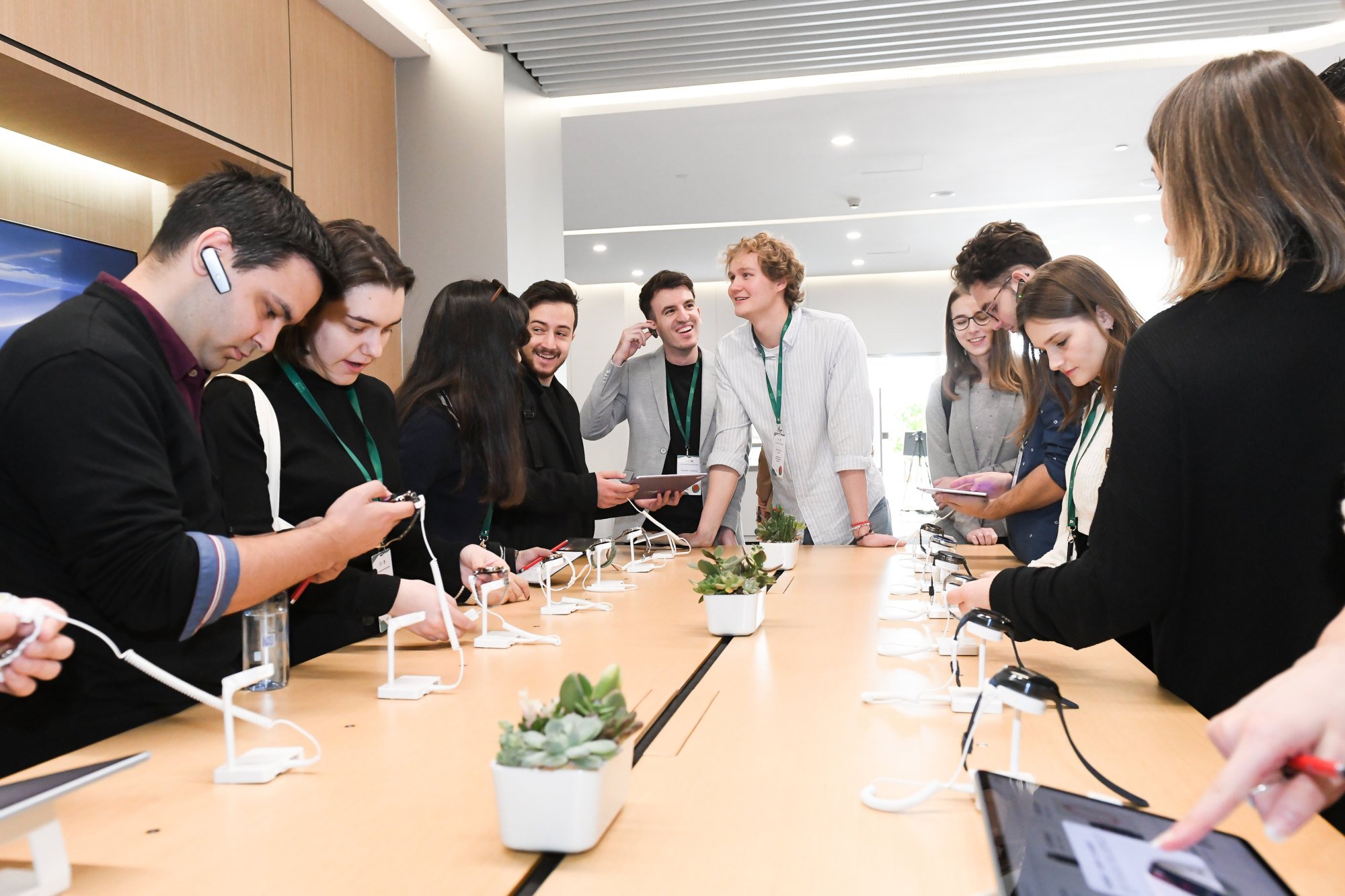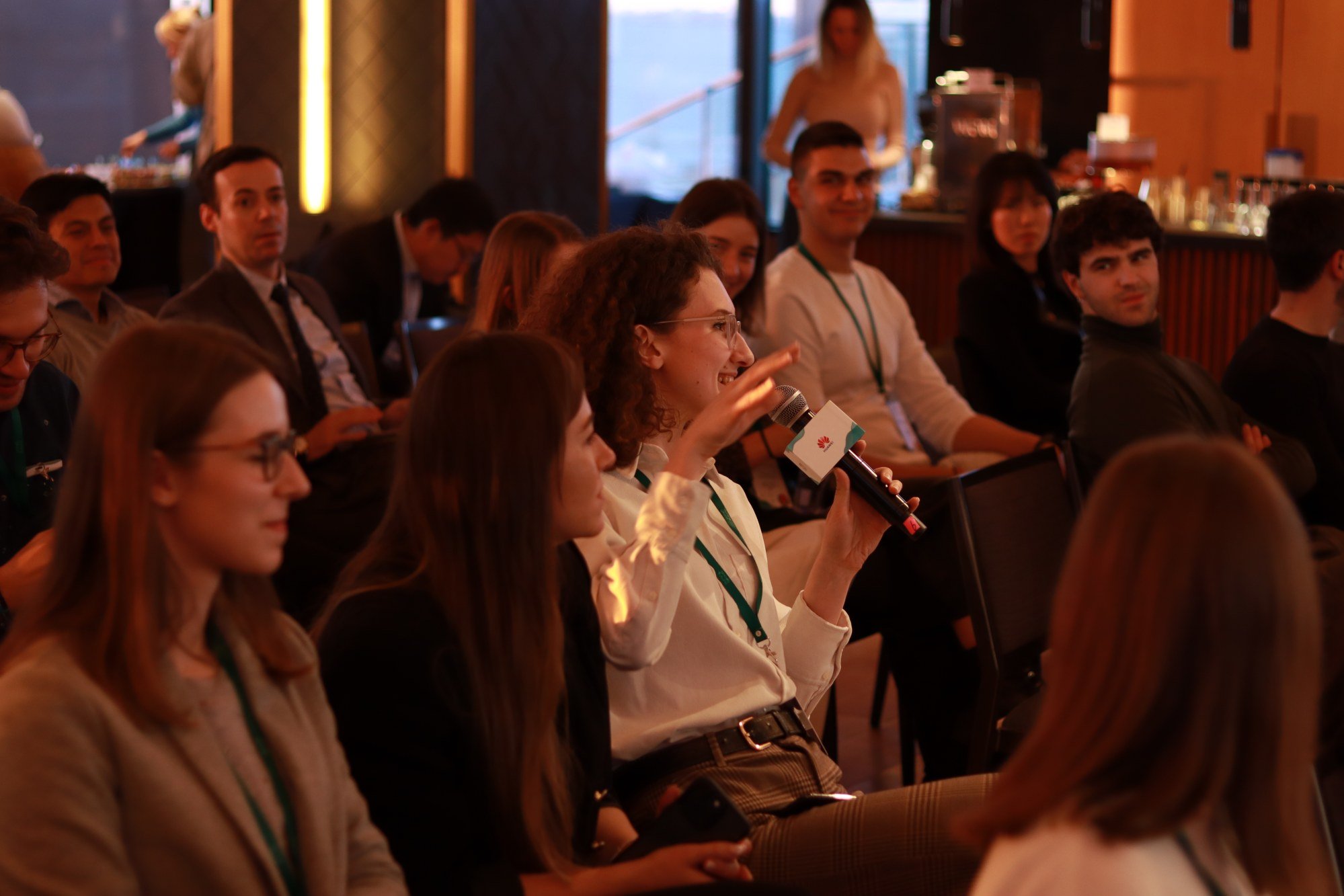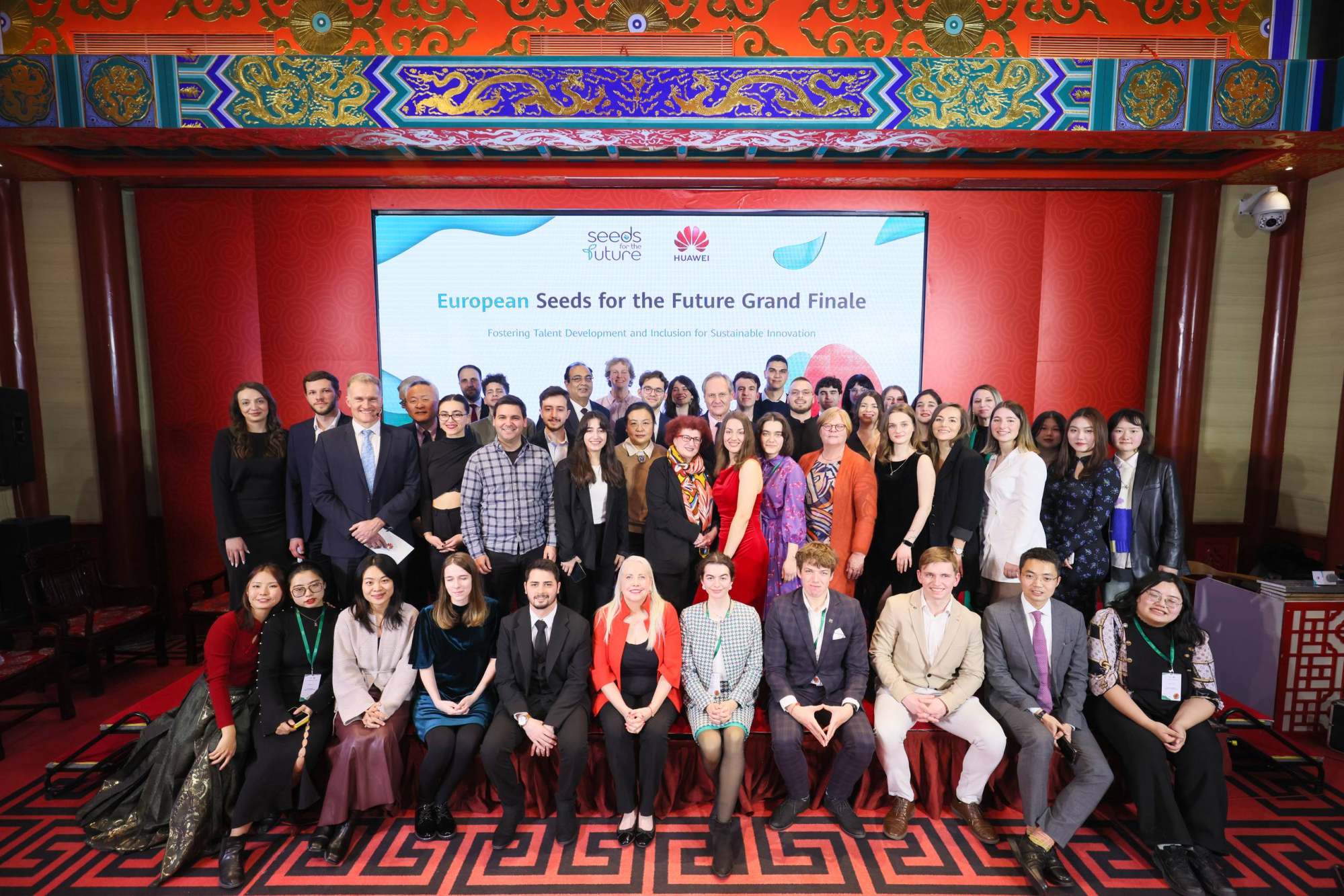
How Huawei Technologies’ Seeds for the Future programme nurtures global talent and drives innovation
- Firm’s flagship corporate social responsibility initiative works with 500 global universities and has benefited more than 18,000 students worldwide
- Young European talent meet tech experts, examine realms of connectivity and innovation, and discuss diversity and sustainability during latest event
China, as the world’s second-largest economy populated by almost one-fifth of the global population, is a driving force in international affairs and human development. The technological advances the country has made in recent decades are also attracting attention and curiosity worldwide.
To boost inbound tourism and people-to-people exchanges, China began to grant 15-day visa-free entries to passport holders from France, Germany, Italy, the Netherlands, Spain and Malaysia from last December as part of a policy trial that will run until the end of this November.
Nationals from Switzerland, Ireland, Hungary, Austria, Belgium and Luxembourg have since been added to the list. The international business community has welcomed the move as it makes business travel easier and will encourage more delegates to visit for meetings, conferences and exhibitions.
For Huawei Technologies, a leading Chinese global provider of information and communications technology (ICT) infrastructure and smart devices, the new policy is also conducive to its many international training programmes that are helping to nurture global talent and drive innovation for the future.
The company has just finished the latest round of its global Seeds for the Future programme, which saw a group of university students from 18 European nations travel to Guangdong province and Beijing in January for an enticing week of Chinese cultural, educational and collaborative activities.

The “Seeds for the Future European Grand Finale” enabled the students to take part in illuminating sessions with technology experts, examine the realms of connectivity and innovation, and contribute to insightful panel discussions on hot topics such as diversity, green skills and sustainability.
Huawei launched this flagship corporate social responsibility programme in Thailand in 2008, with the mission to select bright young talent from universities in various countries to participate in short-term training, global competitions and continuing alumni activities centred around digital technology.
The goal is to give them exposure to practical industry knowledge and ability and cross-cultural experiences that will help to cultivate an entrepreneurial spirit. The programme embraces diversity and inclusivity as its core values, and at least one-third of participants are women students.
Up to last December, Huawei’s global programme had collaborated with more than 500 international universities, benefiting more than 18,000 students from 140 countries and regions. The programme has been supported publicly by 370 heads of state and government officials.
Maksymilian Kedzierski, a management and leadership student at Poland’s private, not-for-profit SWPS University in Warsaw, was one of the participants representing their countries during January’s European trip. “In Poland, there were 250 applicants in total, and only 50 of them made it to the European regional round,” he said.

A key part of the programme is the Tech4Good Competition, which sees teams of students from each country given one week to find solutions for global and social issues through technology. Leading teams will have the chance to enter a global competition to vie for funding prizes and Huawei’s support for their business ventures.
“In the regional round, my team’s project, of which I was the leader, managed to get recognised,” Kedzierski said. “I was chosen as the most active participant and that’s how I managed to be in this distinguished group that had the opportunity to attend the grand finale in China.”
During his China trip, Kedzierski, along with many other programme participants from Europe, visited Huawei’s Exhibition Hall in Shenzhen and Beijing Research Centre for a close look at some of the company’s breakthrough technologies and crucial research and development initiatives, which in 2022 made up 25.1 per cent of the company’s total spending of 161.5 billion yuan (US$22.5 billion).
“Huawei Technologies is innovative and human-centric,” Kedzierski said. “The range of Huawei’s social engagement is truly vast – from helping villages in Mexico to digitise, to helping local communities in China.”
Another participant Milan Nikolic, studying in the mathematics, natural sciences and information technologies (IT) department at Slovenia’s University of Primorska in Koper, said: “To see Huawei’s approach to advancement and progress in tech, and its approach to different technologies in numerous fields, as well as being able to discuss technical questions with the amazing presenter of that trip, provides a lot of value for me as a young professional in the IT space.”

Many students on the trip were making their first visit to China, including Damian Gornik, who is studying for a master of science degree in data science and analytics at Ireland’s Munster Technological University.
“When I arrived in Shenzhen, I was surprised by how quiet the city centre is, which is due to the fact there were mostly electric cars, which make minimal noise,” he said. “So I was impressed by how far ahead China is in the transition to electric vehicles.”
Gornik said the programme prepared him well for his future career: “The main skills I gained were definitely the ability to work in a team and lead a team towards a common goal, as well as the ability to work under pressure and come up with solutions to problems in a quick and efficient way. These are versatile skills that I’m already applying in both my academic and professional life.”
Students on the trip also had the opportunity to hear from industry experts and influential politicians.
“Our meeting with Diana Zahorte, a political officer with the Delegation of the European Union to China, was particularly interesting,” Hannah Kuhn, an English and German law student at Germany’s Humboldt University, said.
“It allowed us to gain comprehensive insights into the current state of diplomatic relations between the EU and China,” said Kuhn, who joined the tour as an alumnus of the European Leadership Academy, an initiative of Huawei, which aims to provide training for future women leaders.
Martha Mavrommati, ambassador of Cyprus to China, another speaker during the tour, told students: “You’re the future of the world. You’re going to work for sustainable development. Make your dreams a reality. And always treat people the way you want them to treat you.”
During the closing ceremony, it was announced that an immersive, fully offline Seeds for the Future in Europe event will take place in Rome, the Italian capital, in July. Students from Europe studying science, technology, engineering and mathematics (STEM) were encouraged to apply to help foster a vibrant ecosystem for learning and collaborative development of Tech4Good start-up ideas.

Huawei has also unveiled a new Seeds for the Future Scholarship programme, which is designed to support talented ICT students in the Netherlands, Bulgaria and Cyprus.
Huawei started its Seeds for the Future in Europe programme in 2011. Up to January, 4,910 students from 37 European countries had taken part in the programme.
In July 2021, Huawei launched its “Seeds for the Future 2.0” plan, which is committed to provide funding of US$150 million until 2026 to help enhance digital skills for university students and young people, and is expected to help more than 3 million extra beneficiaries.
Up to last June, Huawei had also collaborated with more than 2,600 universities worldwide to establish Huawei ICT Academies based in more than 110 countries and regions, which train over 200,000 students annually. The company provides a global platform for international competitions and exchanges through the Huawei ICT Competition.
The 7th Huawei ICT Competition attracted entries from more than 120,000 students from over 2,000 institutions from more than 74 countries and regions.
After a series of national and regional competitions, the global finals, featuring 429 students and 146 teams from 36 countries and regions, took place at Huawei’s Bantian campus in Shenzhen.
In 2019, Huawei launched its Tech4All digital inclusion initiative, which includes a focus on using technology to achieve fair and quality education, ensuring that more people can enjoy excellent education and will not be left behind in the digital world.
Up to 2021, over 400 schools and more than 110,000 teachers, students, and unemployed youth have gained internet access, received digital skills training, and improved their technological literacy thanks to the Tech4All project.
Annette Nijs, former state secretary for education of the Netherlands, said at the end of the student’s trip to China: “The commitment of Huawei to encourage students who embrace technology is as admirable as it is important. After all, technology will continue to create a fundamental shift in the way we work and live. ICT students of today will use technology in their careers to give wings to the changes of our societies.”

